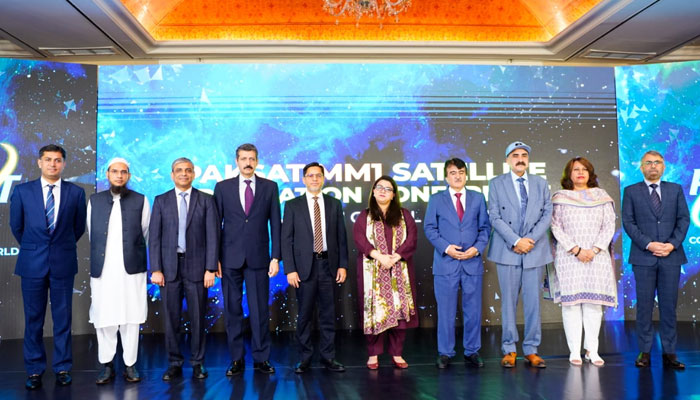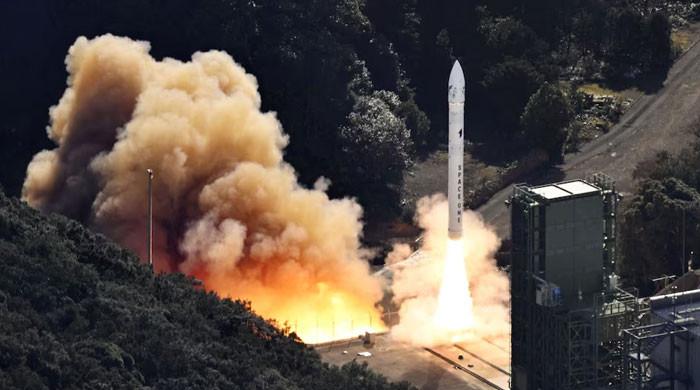Govt 'committed' to space technologies for national growth: IT minister
"Digitalisation is key to socio-economic prosperity," says Shaza Fatima Khawaja
September 18, 2024

Minister of State for Information Technology and Telecommunication Shaza Fatima Khawaja has reaffirmed the government’s commitment to using space technologies for national growth.
The minister's statement came during the PAKSAT-MM1 Satellite Application Conference which showcased Pakistan's dedication to advancing its space technology for national development.
"The success of PAKSAT-MM1 will revolutionise our communication infrastructure, benefiting all sectors of society," said the minister during the conference, emphasising that the satellite will enhance internet connectivity, especially in remote areas, advancing the government's goal of a digitally connected Pakistan.
"Digitalisation is key to socio-economic prosperity," she added
Khawaja also noted Pakistan’s improvement in the UN’s e-governance development index, saying, "Pakistan’s ranking has improved by 14 points, with the country moving to the high tier of digital e-governance in Asia."
Technology legal and policy expert Barrister Zahid Jamil, the keynote speaker, commended the minister for presenting a positive image of Pakistan and encouraging investment in the country.
Drawing inspiration from John F Kennedy, Barrister Jamil quoted, "We do these things not because they are easy, but because they are hard."
He emphasised that Pakistan, like the United States, is striving to overcome challenges in becoming a spacefaring nation.
Barrister Jamil praised SUPARCO and PAKSAT for the successful launch of PAKSAT-MM1, detailing its importance in improving communication and broadcasting capabilities. He emphasised the satellite’s broad coverage and the variety of services it will provide, including DTH, community internet, tele-education, and tele-medicine, all of which will aid in serving unconnected regions.
"PAKSAT-MM1 and SUPARCO are a ray of hope for Pakistan, not only putting the country on the terrestrial map but also on the celestial map," Barrister Jamil remarked. "They represent the spirit, ingenuity, curiosity, adventure, technical prowess, and determination of the Pakistani people."
Barrister Jamil also raised concerns about the risks posed by unregulated low-earth orbit satellites, which could potentially affect Pakistan's strategic assets. He called on Pakistan to engage more actively in international forums such as the International Telecommunication Union (ITU) and the United Nations Office for Outer Space Affairs (UNOOSA), especially given the new opportunities offered by PAKSAT-MM1.
SUPARCO Chairman Muhammad Yousuf Khan also addressed the audience, praising the efforts behind PAKSAT-MM1.
"PAKSAT-MM1 will serve unconnected regions with services like DTH, community internet, tele-education, and tele-medicine,” Khan said, inviting local industries to collaborate on future space-related initiatives.
Khan also highlighted the satellite’s 15-year operational lifespan and its offerings, including broadband and VSAT connectivity, which contribute to Pakistan’s ambition of becoming a digitally empowered nation.
The conference was attended by government officials, industry leaders, and experts, who celebrated the role of PAKSAT-MM1 in bridging the digital divide and promoting national development.











